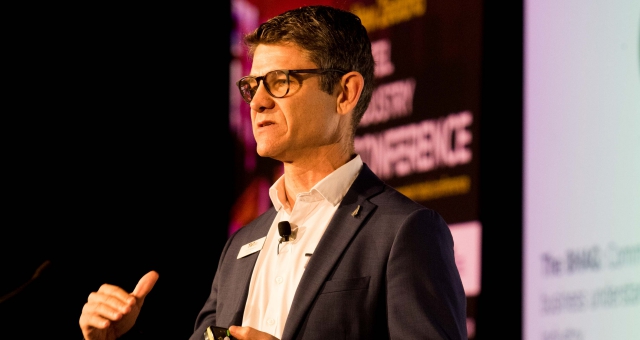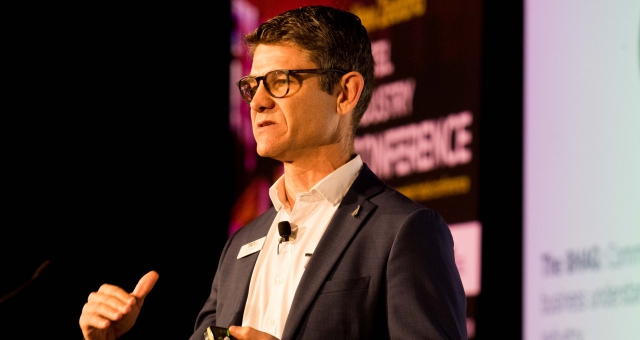By Nikki Birrell at NZHIC in Auckland
Tourism Industry Aotearoa (TIA) CEO, Chris Roberts, did an outstanding job of standing in for the Tourism Minister at this year’s New Zealand Hotel Industry Conference (NZHIC) in Auckland this week (July 5).
His presentation focused on two keys areas and the first was the New Zealand Sustainability Commitment, launched by the TIA at the end of last year.
“We think it’s a crucial initiative, we want the industry to embrace this and so far it has really taken it on board,” he said.
Three-hundred companies have already signed up to the initiative and the aim is to have 1000 signed up by the end of the year.
The initiative is based around 14 business-level commitments made across the four parts of sustainability: economic, environment, the host community and the visitor.
“Nobody can sign up to this lightly,” said Chris, “But these are aspirational values”.
He congratulated the hotels already signed up and encouraged everyone else to do the same.
HM put some questions to Roberts after the presentation to clarify how the initiative will be measured.
He said: “The sustainability commitment has eight industry level goals in it. We are developing measures for each one of those goals, one of those remains a financial one. We can measure industry progress towards a sustainable tourism system in 2025.”
Roberts also outlined how the sustainability commitment and its logo relate to the current Qualmark system.
“The sustainability commitment is a values-based approach, it’s a business saying we will make this commitment to work towards the 14-business level commitments. It doesn’t mean you’re doing them today, you’re working towards them. Qualmark is a point-in-time inspection – looking at a much broader range of criteria. That’s the big difference.”
The second key issue of Roberts’ address was the proposed border tax, which is currently taking submissions up until July 22.
HM asked for the TIA’s views on the levy and Roberts confirmed that the TIA would not be arguing for the border tax to be dropped but rather making submissions around improving the design of it.
“Our main focus is what is the money going to be spent on and there’s no detail for that currently,” Roberts said. “It says the money will go between tourism and conservation and there’s nothing there on who controls it.”
It is TIA’s view that ,“There needs to be some kind of industry advisory council, non-government influence on how the money is spent.”
The idea is for the money to go into a memorandum account that can only be drawn out for identified spending, which Roberts is an advocate of to ensure the money is going to improve the visitor experience, relieve a constraint and make a difference.
“We’d hate for it to disappear into general lines of funding. We’ve looked across to Australia – the departure tax in Australia is a horrendous example of a border tax. It’s been raised about six times, it’s now sitting at about $60 per passenger, none of it can be tagged back to making a difference to the visitor, it’s all just in the general budget,” Roberts said.


